My 2022 Reading (which, because of my unique tracking methods, began in December) is off to a strong start, with a decent variety of genres/topics, and an unusual (but welcome) predominance of nonfiction titles. I shared reviews of three Christmas reads (two advent devotionals and a book about the real Saint Nicholas) in my Lately post for December. Today we’ve got reviews of the remaining seven books I read in the past month, including one 5-star read you’ll want to pick up this winter if you haven’t read it already.
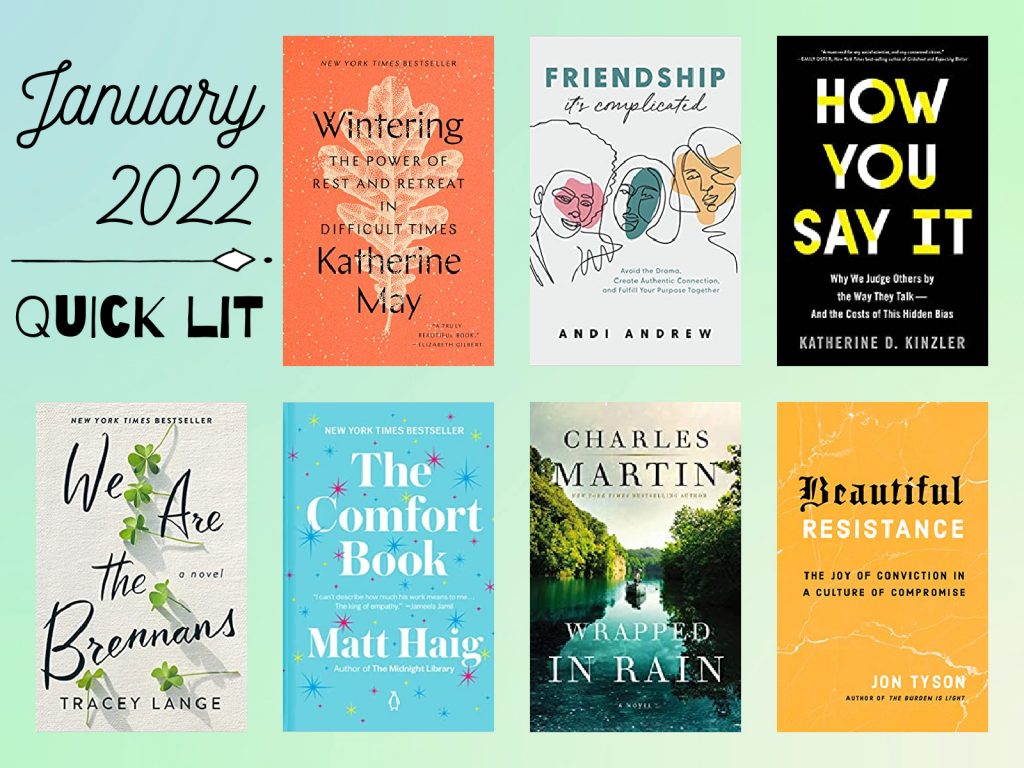
Friendship—It’s Complicated: Avoid the Drama, Create Authentic Connection, and Fulfill Your Purpose Together, by Andi Andrew: The title of this book says it all: friendship really IS complicated. Though it came easily for most of us as young children, adult friendship (especially adult female friendship) is often nonexistent or marred by drama, insecurity, competition, and inauthenticity. We women are experts at wounding others and harboring grudges, bringing our unhealthiest selves into relationships that have no hope for thriving. We know this can’t be God’s design for healthy connection, but don’t know where or why we’ve gotten off track and how to start afresh.
Bible teacher Andi Andrew has navigated her share of challenging friendships. This book contains her hard-learned lessons and advice for becoming the healthiest versions of ourselves, providing a crucial foundation for healthy friendships. The first half of the book centers around self reflection, helping readers identify our “woman wounds” (poor examples of female connection); learn to forgive; and overcome our tendencies for self-preservation and drama. The book’s second half digs into un-complicating friendship, from creating authentic connections and identifying our friendship circles, to learning how to be spiritual midwives for our sisters in Christ.
Friendship does not come naturally for me, and it’s an area I would love some guidance in, so I had high hopes for this book, but found it to be somewhat of a letdown. Not long into the book, I realized this was less of a relationship book and more of a self improvement guide. I can appreciate the need for “self work” that must come before relationship, and maybe for some readers these reflective chapters would be beneficial; since I’ve leaned in pretty heavily to the self improvement realm for several years now, these chapters were mostly review. I wanted more depth from the “outward-facing” sections of the book, which offer ideas for overcoming problems but provide little guidance in actually establishing and cultivating friendships. In other words, this book seems to be geared towards women who have a lot of unhealthy friendships rather than women (like me) who are lacking in friendship altogether. There are some great concepts (I especially liked the section on being spiritual midwives in our relationships), and Anei does offer a desirable portrait of what friendship can and should look like, I just felt like we could have gotten more advice on how to actually get there.
Andi shares vulnerably in this book, but somehow her tone didn’t always sit well with me. I imagine it must be difficult to write candidly about fractured friendships without coming across as vindictive or petty; I could sense Andi’s heart in wanting to share her stories truthfully but also as respectfully as possible, but not every anecdote landed as I’m assuming she hoped it would.
I can see how this book might be very beneficial for some women, offering the healing they seek in themselves and their relationships. The ideas are rooted in scripture and well-intentioned, and the premise is an important one. For me, though, the messaging and tone just weren’t a good fit.
My Rating 3.5 Stars (Rounded down to 3 stars on Goodreads.) // Book Format: Audiobook
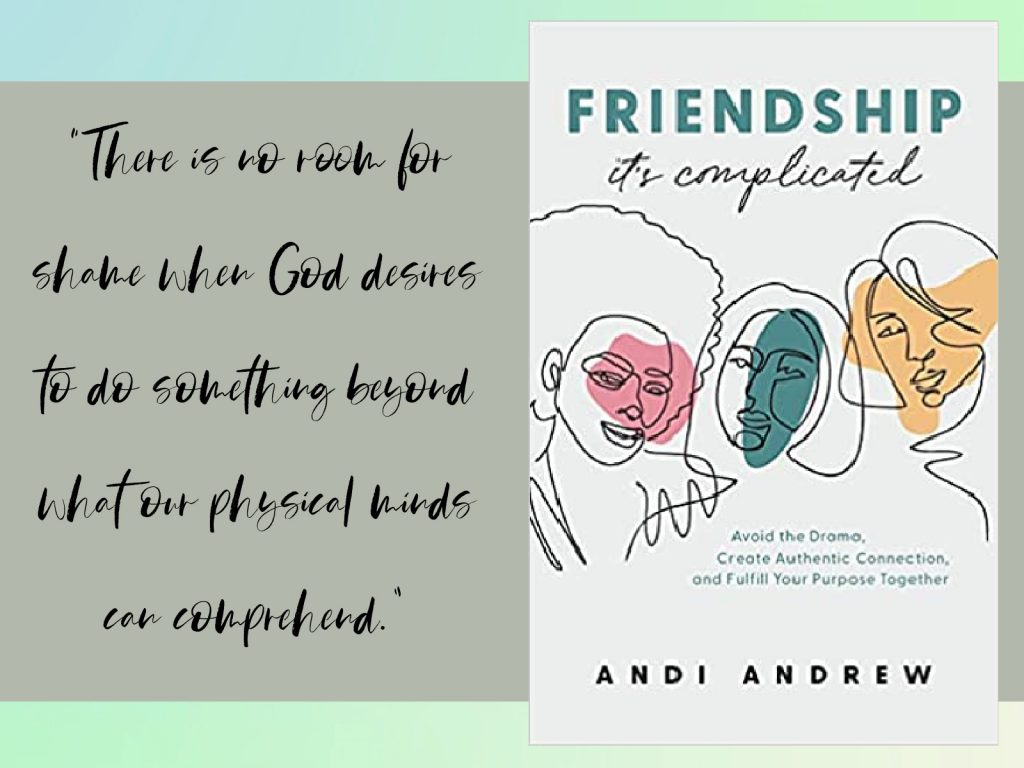
The Comfort Book, by Matt Haig: After the past couple of years we’ve had, we all could benefit from an extra dose of comfort, and having lived through years of depression and come out on the other side, bestselling author Matt Haig has plenty of comforting ideas to offer. In this heartfelt collection, Haig shares bite-sized advice, aphorisms, observations, lists, mantras, poems, reframes, stories, quotes, and encouragement for those who are sad, lonely, helpless, lost, or just in need of a little pick-me-up. Each tiny chapter is written with earnestness and compassion, uniting Haig’s unique observations and a depth of understanding that is enriched through years of suffering and introspection.
This is a short book, but I took my time with it, savoring every quote and new idea. Every page provided plenty to reflect on; though most of the book’s content is recycled from prominent philosophers and faith teachers, I liked having these ideas (about resilience, purpose, hope, etc.) in one spot and in this very accessible format. But while much of the book is inspiring, I found myself feeling sad for Haig whose lack of faith in God or understanding of Jesus makes for a somewhat hollow world view. Though his encouragements are uplifting, they are only a temporary antidote that could leave readers wanting and needing so much more.
Having come through a serious bout of depression myself, I appreciated this book but don’t know how well it would have resonated in my darkest periods. I see much of my story in Haig’s reflections, which was partly validating but might have been discouraging if I’d read them at the wrong time.
I love that Haig’s book offers permission to feel, hope, and dream, but as I read I could only imagine how much MORE empowering a book like this would be if written with an undergirding of the knowledge of Jesus’ love and the hope and joy He offers.
My Rating: 4.25 Stars // Book Format: Kindle
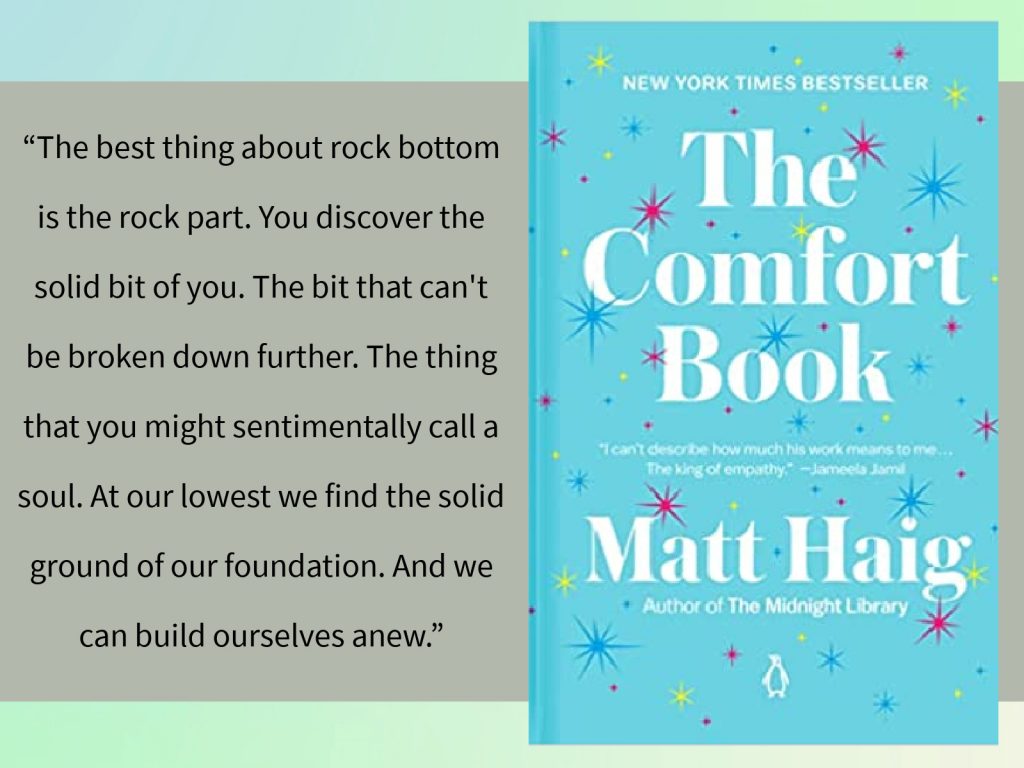
How You Say It: Why We Judge Others by the Way They Talk—and the Costs of This Hidden Bias, by Katherine D. Kinzler: Our words matter; we know this. Recent discussions of “hate speech” and “micro aggressions” have us paying particular attention to the specific messages of others and to our own words, too. Whether we take care with our words or not, we are aware of their impact. Something we might not pay as much attention to is the way we and others speak. But our accents and dialects, the actual “how” of our speech, says a lot about our identities—from our cultural upbringings to our race, class, and more—and our speech projects messages to others, just as others’ speech tells us more than we realize about those around us.
In How You Say It, psychologist Katherine Kinzler digs into the concept of linguistic bias, identifying the ways we are hardwired to prejudge (and potentially discriminate against) others based on the ways they talk. She explores the ways that speech unites or divides us, how we grow into speech identities and prejudices from birth, and the ways we can benefit from exposure to a variety of languages, even as we default to linguistic tribalism.
This is a compelling topic, one I haven’t given much thought to but that affects our society far more than I’d realized. Kinzler raised my awareness of the prevalence of linguistic prejudice and bias (something even more rampant than racial bias) and the ways that someone’s speech can help or hinder their opportunities and social experiences. I was very interested in learning how young children draw assumptions based on speech patterns (kids are SO SMART!), and the discussion of bilingualism (particularly language immersion education programs) was intriguing.
While this book is enlightening, it is also repetitive and not the most engaging read—there are lots of studies and analysis, but few stories or very much information that isn’t “common sense” once Kinzler draws attention to the issues at hand. I also didn’t love some of the progressive conclusions Kinzler draws from her findings, offering “solutions” to issues that aren’t necessarily problems. Yes, we should be aware of linguistic bias, but I don’t know if there is much data to support the efficacy or necessity of her suggested policy changes (especially in regards to linguistic bias in the work place). I think this book would have worked better as a long form essay, containing just the facts and not the commentary or exhaustive study analysis.
My Rating: 3.5 Stars (Rounded down to 3 stars on Goodreads.) // Book Format: Audiobook
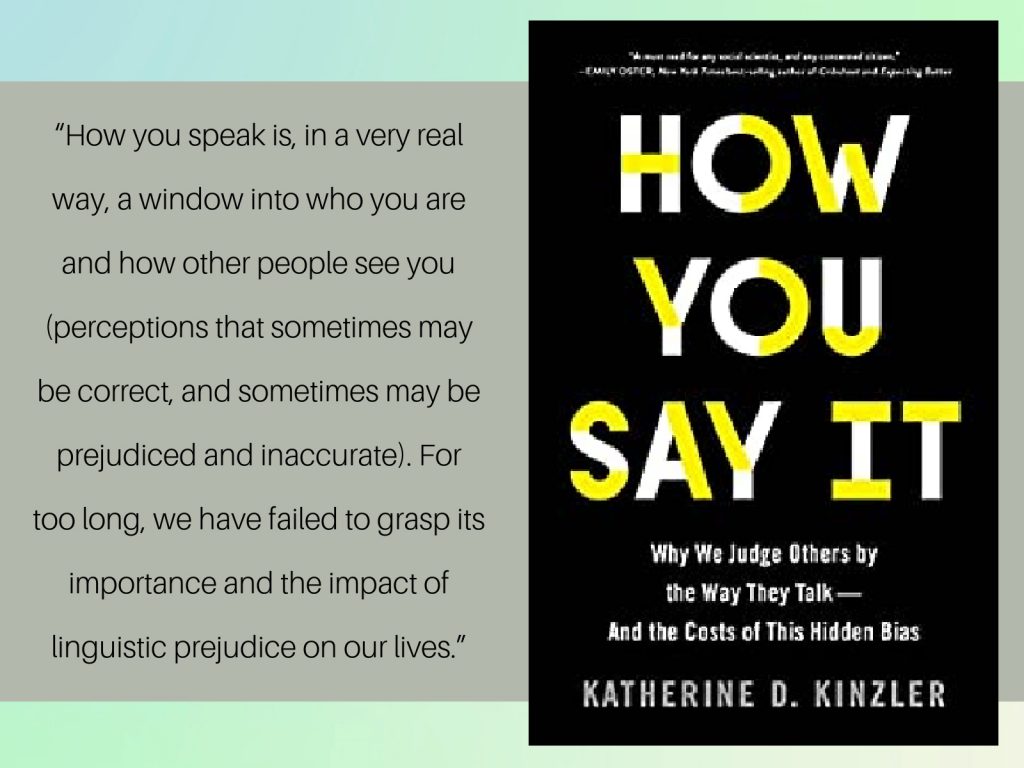
We Are the Brennans, by Tracey Lange: Five years ago, Sunday Brennan walked away from the life she’d always known, a family she adored, and a fiancé who held her heart. She left New York without notice or explanation, presumably for new opportunities in Los Angeles. When she wakes up injured (in body and spirit) in a hospital following a drunk driving accident she caused, the twenty-nine-year-old has little choice but to return home. But the Sunday who returns to New York is not the soft-hearted, naïve, conscientious young woman who left five years ago, and the family she’s returned to is also unfamiliar: her family’s pub business is on the brink of financial ruin, her brother and former fiancé are both married and the fathers of preschoolers, her mother is gone, her father’s mental health is deteriorating, and her younger brothers have struggled to stay afloat without their sister’s steady presence. This close-knit Irish Catholic family is determined to move forward, but they must unearth past secrets and repair hidden wounds if they are to preserve their business, their family, and all they hold close.
This is a complicated family story with heart and just enough drama to keep it interesting. The book is told from multiple points of view, a format I love when done well, as this is, with chapters flowing into each other using creative positioning of dialogue. The multilayered narration gives us a richly imagined portrayal of family, loyalty, brokenness, forgiveness, and the decisions we make to protect our own hearts and the interests of those we love. Though flawed, the Brennans are all likable and believable characters with unique sibling dynamics and noble motivations (even if their decisions had me shaking my head at times).
I liked this book quite a bit; it reminded me a lot of Ask Again Yes, and though this didn’t have the “wow!” factor of that book, it was an engaging read—right up until the final few pages, which I did not like AT ALL. They would make for great book club fodder, though! Despite my qualms with the way the story panned out, it’s definitely a book I would recommend and I look forward to reading more from this author.
My Rating: 4 Stars // Book Format: Kindle
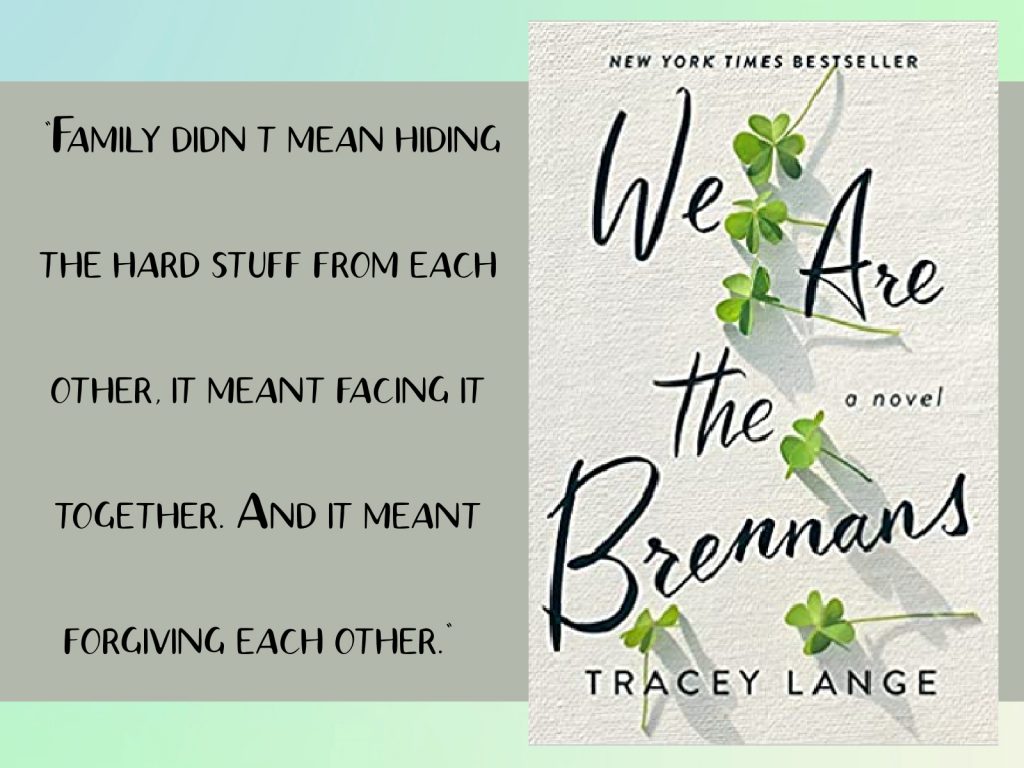
Wrapped In Rain, by Charles Martin: Tucker has spent years running from his brutal childhood and the father who left a legacy of brokenness and pain. After years spent as an internationally famous photographer, Tucker has returned to rural Alabama where he must reckon with the ghosts he left behind. His brother, Mutt, has escaped from a mental hospital and his whereabouts are unknown. And an old girlfriend has shown up with a son whom she needs help protecting from her vindictive ex-husband.
As Tucker seeks to make amends, he has the echoes of Miss Elsa’s kind-hearted, faith-filled wisdom and advice whispering in his ear. The woman who was a necessary bright light in Tucker’s dark childhood has been gone for many years, but her presence has never been felt more strongly.
I’ve read a few of Charles Martin’s books and adore his earnest storytelling, endearing characters (who are broken but not past the point of redemption), and poignant themes. This is one of his earlier books and is not as polished as his more recent titles: the messages are pretty on the nose, the story is unnecessarily saccharine, the plot drags in the middle, and I had a hard time feeling like I truly knew our protagonist. But although this isn’t my favorite of Martin’s books, the character of Miss Ella just might be. She is strong, sacrificial, wise, and no-nonsense but also fiercely passionate for the Lord and committed to a life of love and service to Him. Her Scripture-laden advice and unfailing faithfulness are inspiring, and I loved seeing the ways that she guided Tucker, even after she was gone. She was not his mother (or a mother at all, for that matter), but for this “mom” reader she provided a beautiful “mother role model” of someone I want to be for my own kids.
I’ve often described Charles Martin as a Christian Nicholas Sparks: expect tears with this book, but love and beauty too. This is a story of love’s power over hate, of healing that comes through forgiveness, and of faith that sharpens hard edges and smooths out the bumpiest of roads.
My Rating: 3.75 Stars // Book Format: Kindle
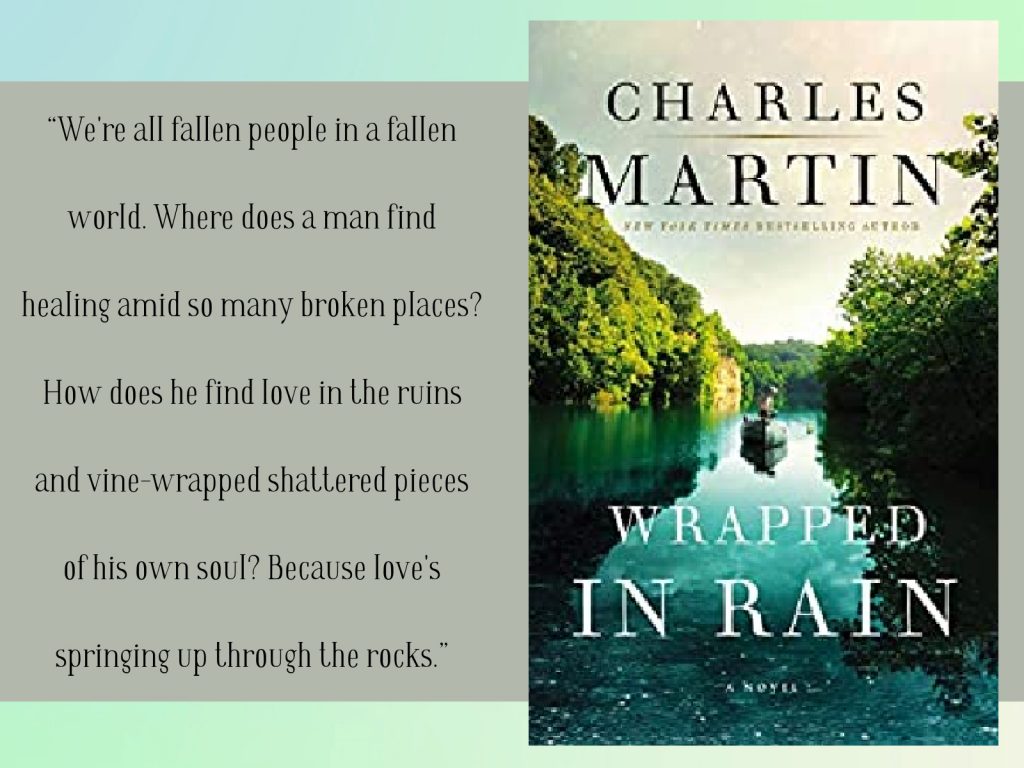
Wintering: The Power of Rest and Retreat in Difficult Times, by Katherine May: We’ve all experienced (or perhaps are experiencing) our personal winters—those seasons of hardship and pain that force us to step into a time of hibernation as we seek healing and hopefully a path towards the rebirth of spring. In Wintering, memoirist Katherine May recounts her own winter season, endured across several months of an actual winter. From September through March, she shares personal narrative of her winter trials (and trials of winters past), interwoven with meditations and lessons gleaned from science, nature, mythology, and beyond. With an eye toward hope and redemption (that in no way diminishes the pains and sadness of a winter season), May offers encouragement for readers as we seek meaning, beauty, and growth from the darkness of our winter retreats.
Oh, I adored this book that I savored over a few weeks in December. It is the perfect winter read—brimming with sights and sounds and feelings of winter, while drawing the reader into the cozy warmth that can be experienced only from within the dark and cold of this season. May’s prose is mesmerizing, recounting engaging stories and brilliantly paced observations in philosophical, marvelously poetic language. This is not a faith-based read, but echoes with ideas of Advent and our intrinsic longing for something beyond ourself, our hope for what we believe is to come.
This would make the perfect gift for someone experiencing a painful time and in need of bookish encouragement without the slightest hint of toxic positivity or shameless melancholia. It offers the nourishment of chicken soup, the comfort of a cozy afghan, and spark of light that we all seek in the darkness.
My Rating: 5 Stars // Book Format: Kindle
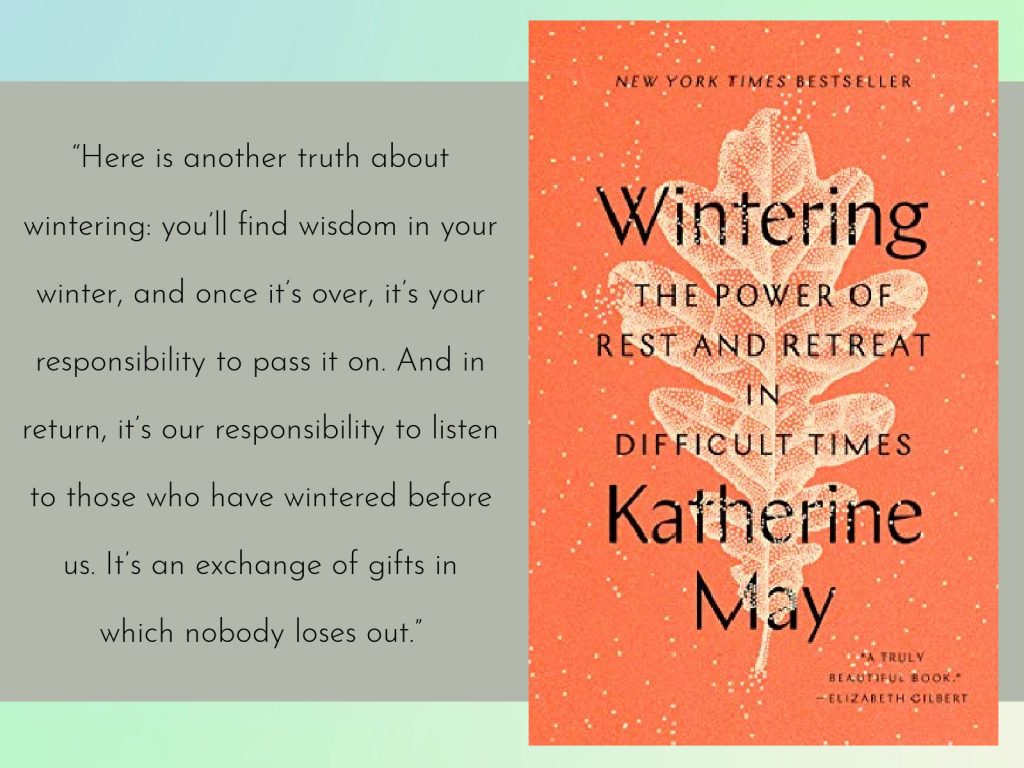
Beautiful Resistance: The Joy of Conviction in a Culture of Compromise, by Jon Tyson: Our community group was looking for a book to read together that would guide us in a Christlike approach to living as Jesus followers in an increasingly secular culture. This book that I first read in the summer of 2020 was the first book that came to mind, and our group jumped on board with my recommendation. Here’s a recap from my original review:
Pastor Jon Tyson offers a unique take on joy as he explores the joy that can be found in resisting cultural norms. Tyson writes, “the joy and satisfaction that come from being faithful to Christ will always be richer than the mere ease that comes from drifting along the cultural currents.” Such resistance is not easy. Tyson points out that “in many areas our culture is almost unrecognizable compared with a generation ago.” Our world has experienced massive shifts in sexuality, ethics, technology, secular ideologies, religion, and globalization, and the church has failed to respond to the spiritual devastation that has resulted from such cultural change. It is not too late, though, for Christians to live with devotion and conviction, standing up to compromise in an act of beautiful resistance. In this journey back to conviction, Tyson takes his cue from Dietrich Bonhoeffer, a pastor and theologian who was troubled by the compromise he saw in the German church during World War II. Bonhoeffer sought renewal and revival for the church and culture of his day, just as Tyson desires resurrection for today’s declining generation. With Beautiful Resistance, Tyson seeks to show readers “the joys and challenges that come when resistance rises in your heart and formation begins to happen.” Tyson outlines several key areas of brokenness, making a case for why these issues are detrimental, and how Christians have been complicit. He then prescribes an antidote for each issue, advocating for: worship that resists idolatry, rest that resists exhaustion, hunger that resists apathy, hospitality that resists fear, honor that resists contempt, love that resists hate, sacrifice that resists privilege, and celebration that resists cynicism.
I’m glad I committed to a reread of this book, as I got even more out of it the second time, and I benefitted from the conversations it sparked in our community group. This time through the book, my most memorable takeaways came from the chapter about honor resisting contempt. Our world had been rife with contempt of late and it was helpful to read Tyson’s ideas and examples for countering contempt without falling prey to it ourselves.
Tyson’s words are both convicting and encouraging, providing necessary reminders that “God can use the tension and angst [we] feel for good. For reform, for restoration, and for hope.”
My Rating: 4 Stars // Book Format: Kindle
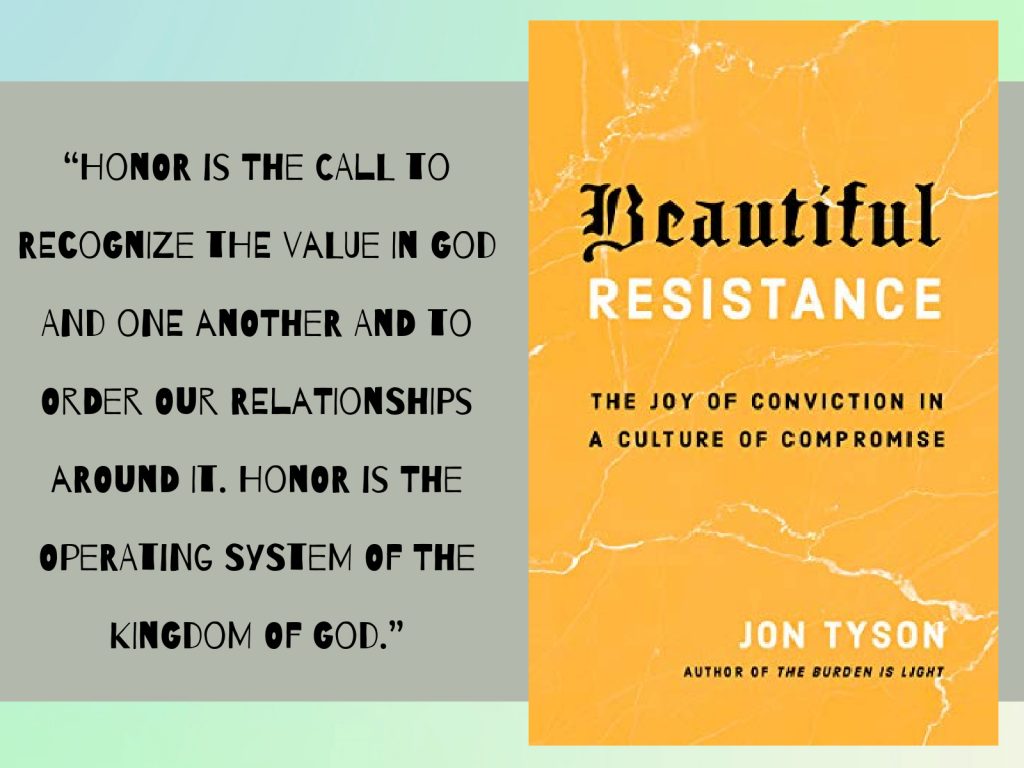
How is your reading life shaping up for 2022? Have you read any of these books? What titles are most looking forward to reading in the coming year?
I really enjoy Charles Martin’s novels, so I added that one to my TBR! My favorite is When Crickets Cry, which is also my first Charles Martin. I have heard a lot of great reviews of Wintering, so I just added it to my TBR list too.
Here are my top reads from 2021, if interested! https://elle-alice.blogspot.com/2022/01/10-favorite-books-of-2021.html
I keep starting and stopping Wintering. I think it’s me and what kind of book I need for now. So, I’ll keep trying it, but even though I’m in the middle of winter with snow all around, I’m still struggling with getting into it.
Hmm, maybe it needs to be a summer read for you!
“Wintering” is on my to-read list. Glad to see you recommend it here, and that it doesn’t include toxic positivity. Looking into “How You Say It” now. I loved “The Comfort Book.” Visiting from Modern Mrs. Darcy.